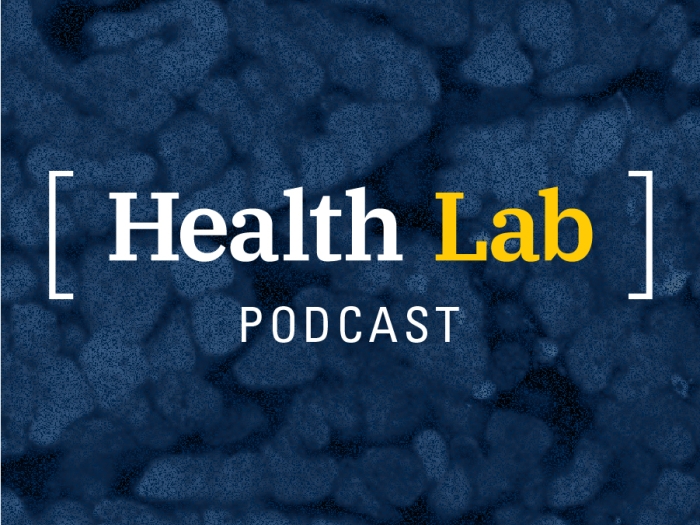A study found anxiety and depression decreased in patients who underwent gender-affirming mastectomies.
9:50 AM
Author |

Surgeons who perform gender-affirming mastectomies know that they help patients. A new study by Michigan Medicine researchers provides data to show exactly how.
The study, published in the Annals of Surgery, surveyed 70 patients six months after they'd received gender-affirming mastectomies to achieve a more masculine appearance. Patients scored higher on mental health measures, were more satisfied with their appearance and reported higher self-confidence in social settings and improved body image overall.
Megan Lane, M.D., a plastic surgery resident at Michigan Medicine and the first author on the paper, said the data validate what she sees in practice.
Like Podcasts? Add the Michigan Medicine News Break on iTunes, Google Podcasts or anywhere you listen to podcasts.
"There's not a lot of information out there about how exactly these types of surgeries help people," Lane said. "We're very thankful to have patients who were willing to do this study and follow up with us. The results are relatively dramatic."
Putting data to anecdotes
Gender-affirming mastectomies, the most common gender-affirming operation, produce physical results for those seeking a more masculine chest appearance. Lane and colleagues wanted to quantify how they improved other, less visible measures, given the wealth of evidence that transgender people experience higher-than-normal levels of anxiety and depression and dissatisfaction with their body image.
Patients enrolled in the study were surveyed before their operations = and six months afterward using criteria that's been well tested and widely accepted in the scientific community. These scales measured anxiety, depression, body image, psychosocial and sexual functioning and patients' satisfaction with their decision, respectively.
SEE ALSO: How Doctors Can Provide Better Care for Transgender Patients
All measures improved significantly after the procedures, and patients were highly satisfied with their surgical outcomes. Even though Lane has seen for herself how much these surgeries improve patients' lives, she was struck by the reported changes.
"I was surprised by how dramatic some of the results were," she said. "There are very few survey studies where you're going to find a 50-point improvement on a 100-point scale. We found this on multiple instruments. We knew this would improve most if not every single domain, but we were surprised by how much these measurements changed.
These are not cosmetic procedures. That's the main argument for not covering them with health insurance.Megan Lane, M.D.
The scales the researchers chose for each health measure lend legitimacy to the findings, according to Lane, because they're widely used and allow for comparisons to other medical conditions.
MORE FROM THE LAB: Subscribe to our weekly newsletter
The why behind the research
Lane thought she was destined for another specialty until she rotated through plastic surgery as a student at the University of Michigan Medical School. Seeing gender-affirming surgery performed, and how happy the patients were afterward, pulled her in a different direction.
"For many people, the day they get their operation is life-changing," Lane said. "There are very few specialties in surgery where you get that opportunity."
Wide variation in state laws and insurance coverage put such life-changing results out of reach for many patients. Lane says the motivation behind this research is to influence policy by showing legislators and payers that gender-affirming surgery isn't simply about changing appearance. It's about changing other health measures influenced by gender dysphoria.
"I hope work like this will strengthen the argument that this is health care," Lane said. "These are not cosmetic procedures. That's the main argument for not covering it."
Paper cited: "Gender Affirming Mastectomy Improves Quality of Life in Transmasculine Patients," Annals of Surgery. DOI: 10.1097/SLA.0000000000005158

Explore a variety of health care news & stories by visiting the Health Lab home page for more articles.

Department of Communication at Michigan Medicine
Want top health & research news weekly? Sign up for Health Lab’s newsletters today!





